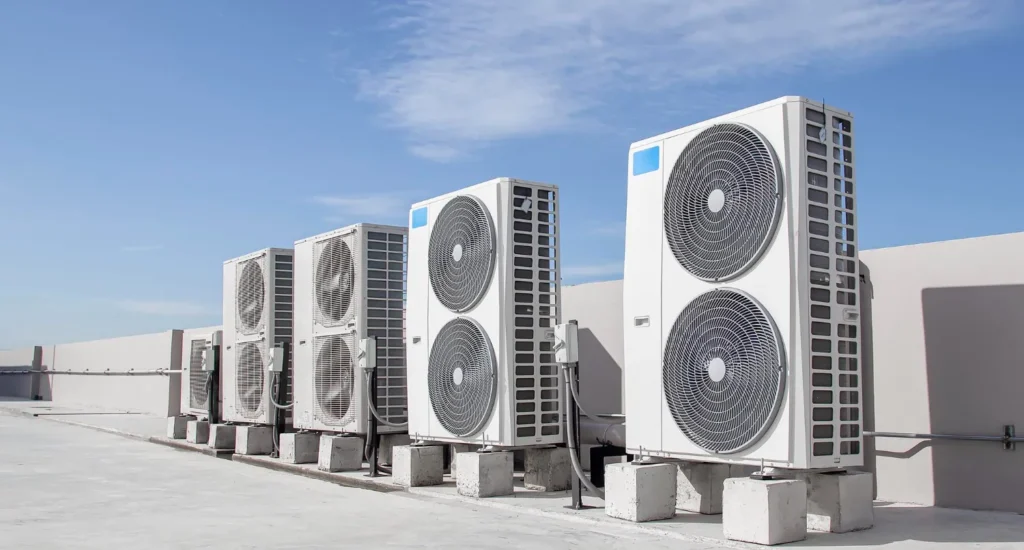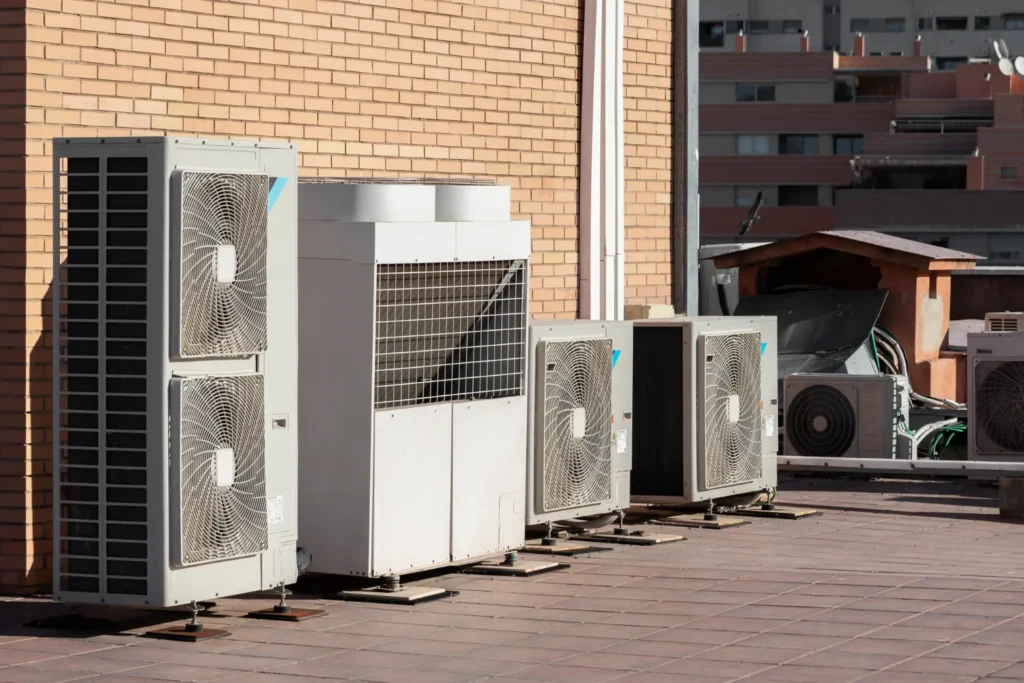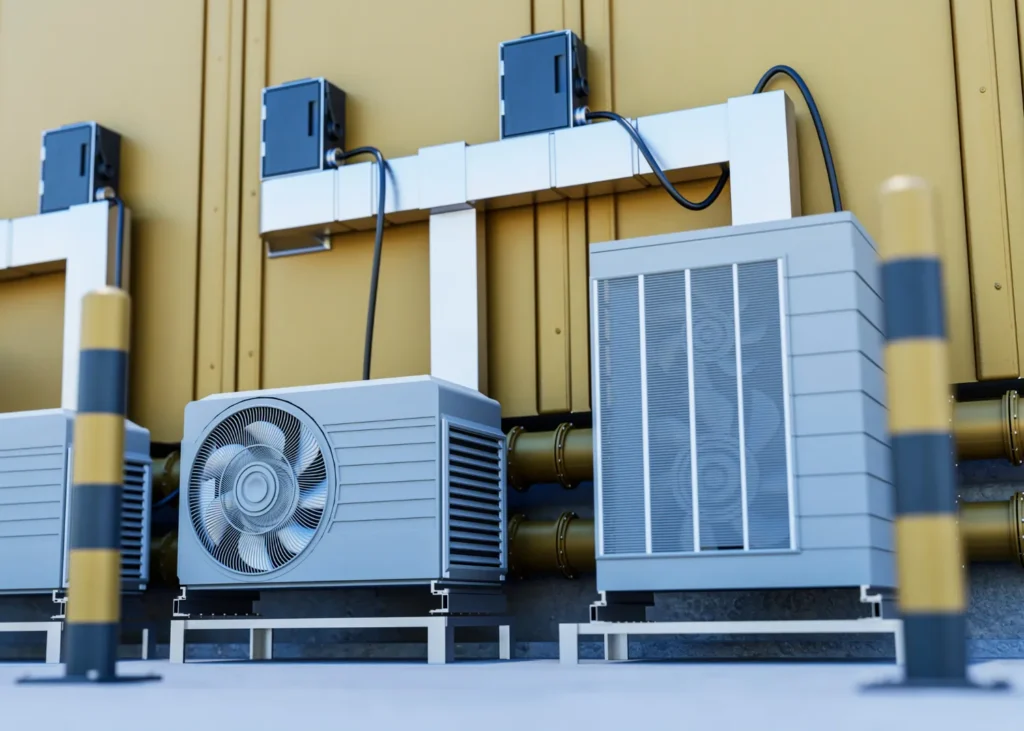Airflow is crucial for adequately functioning your air conditioner, particularly in the scorching heat of Richmond. If you’ve noticed a sudden decrease in the strength of your AC’s airflow, it can be frustrating and uncomfortable. There are several potential reasons for low airflow problems, including a clogged air filter, frozen evaporator coils, leaky or blocked air ducts, and problems with the AC blower. In this blog post, we will probe into these issues, explaining why they restrict airflow, how to identify if they cause your problem, and what steps you can take to address and resolve them.
Identifying Low Airflow Problems

If you’ve noticed that your air conditioner’s have low airflow problems, suddenly went from strong to weak, you’re probably pretty annoyed (and hot). Any sign of low airflow in your Richmond AC unit could indicate potential problems that need addressing promptly to ensure optimal performance.
Tips for Recognizing Airflow Inefficiency
- Clogged air filter: A clogged air filter could restrict airflow, causing your AC unit to work harder to cool your home efficiently. Check and change your air filter regularly to prevent this issue.
- Frozen evaporator coil: If you notice ice forming on the evaporator coils, it could indicate airflow restriction. Turn your thermostat fan to “ON” mode to help thaw the coils and improve airflow.
- Leaky or blocked air ducts: Any holes or blockages in your air ducts can lead to decreased airflow. Have a professional inspect your ductwork to ensure no leaks or obstructions affect the airflow.
- Problems with the AC blower: Issues with the motor can also restrict airflow. If the airflow is weak, have a professional inspect the blower motor for potential issues.
Though low airflow may seem like a minor inconvenience, addressing these issues promptly can prevent further damage to your AC unit and ensure your home stays relaxed and comfortable.
Tools and Techniques for Measuring Airflow
Identifying low airflow problems in your Richmond AC unit requires specific tools and techniques to assess the problem accurately. Regular maintenance and monitoring of airflow can prevent potential issues and keep your AC unit running efficiently. Recognizing the importance of maintaining proper airflow in your AC unit is crucial for its overall performance. Using the right tools and techniques to measure airflow, you can identify and address potential problems before they escalate.
Factors Affecting Low Airflow Problems in AC Units
You may have noticed a sudden decrease in your air conditioner’s airflow, leaving you feeling hot and frustrated. Several factors can contribute to this issue, including a clogged air filter, frozen evaporator coils, leaky or blocked air ducts, and problems with the AC blower. Understanding these factors is crucial in identifying and resolving the issue to restore proper airflow in your AC unit.
The Role of Air Filters in Maintaining Airflow
Assuming your air conditioner’s air filter is clogged, it can severely restrict airflow. Just like trying to breathe with a heavy blanket over your mouth and nose, a dirty air filter limits the amount of air your AC can pull in from your home. It’s essential to check and change your air filter regularly to ensure optimal airflow. Additionally, ensure your return vents are unobstructed to allow for proper air intake.
The Impact of Ductwork on Air Distribution
Any issues with your air ducts, such as leaks or blockages, can significantly affect airflow in your AC unit. Leaky or blocked ducts can prevent cold air from reaching all parts of your home, leading to decreased cooling efficiency. It is recommended to have a professional inspect your ductwork to identify and fix any leaks or obstructions. Adequately sealed and unblocked ducts are essential for efficient air distribution throughout your home.
Factors such as a frozen evaporator coil or blower motor issues can also decrease airflow in your AC unit. Addressing these issues promptly ensures your AC system functions optimally and keeps your home cool and comfortable. Any signs of weak airflow should be investigated and resolved to prevent further damage to your HVAC system.
How-To Troubleshoot a Clogged Air Filter
For optimal air conditioner performance, it’s essential to ensure that the air filter is clean and free from clogs. A clogged air filter can significantly restrict the airflow of your AC unit, leading to poor cooling efficiency. To troubleshoot and address this issue, follow these steps:
Steps for Checking Your Air Filter Condition
Filter: Begin by locating your air filter, which is typically found near the return vents of your AC unit. Remove the filter and inspect it for dirt, debris, or clogs. If the filter appears dirty or clogged, it’s time for a replacement.
Tips for Routine Air Filter Maintenance
With regular maintenance, you can ensure that your air filter remains clean and free from obstructions. Replace your air filter every 1-3 months, especially during peak usage. Knowing when to change your filter can significantly improve your home’s air quality and prolong your AC unit’s lifespan.
- Regularly inspect and replace your air filter to maintain optimal airflow.
- Changing your filter regularly can improve energy efficiency and the overall performance of your AC unit.
- Knowing when to change your filter can improve indoor air quality and reduce the risk of system breakdowns.
Troubleshoot the airflow issues by starting with simple yet crucial maintenance tasks, such as checking and replacing a clogged air filter. By staying vigilant and proactive in filter maintenance, you can enhance the performance and longevity of your AC unit, ensuring a relaxed and comfortable indoor environment for years to come.
How-To Resolve Frozen Evaporator Coils

Identifying Signs of Ice Buildup
Keep an eye out for these signs to identify if your AC’s evaporator coils are frozen:
| Signs of Ice Buildup | Explanation |
|---|---|
| Weak airflow from vents | This could indicate that the evaporator coils are blocked by ice, restricting airflow. |
| Frost or ice on the coils | If you visually inspect the coils and see frost or ice accumulation, this is a clear sign of freezing. |
Step-by-Step Process for Thawing Evaporator Coils
Even if you spot ice on your evaporator coils, there are steps you can take to thaw them:
| Thawing Process | Instructions |
|---|---|
| Turn on the fan mode. | Turn the thermostat fan to “ON” to help the refrigerant lines thaw and melt the ice. |
| Check and change the air filter. | StepbyStep Inspect the air filter and replace it if it is dirty or clogged to improve airflow and prevent future freezing. |
HowTo If the airflow remains weak and the coils are still frozen, it’s crucial to have a professional inspect your system for potential refrigerant leaks. Prompt repair of any leaks will prevent further issues and ensure optimal AC performance.
How-To Repair Leaky or Blocked Air Ducts
Your air ducts play a crucial role in the efficiency of your AC unit. Leaky or blocked ducts can significantly reduce airflow, leading to discomfort and higher energy bills. It is essential to address these issues promptly to ensure the optimal performance of your HVAC system.
Techniques for Detecting Duct Leakage
Leaky air ducts can waste energy and money as conditioned air escapes before reaching its intended destination. Signs of duct leakage include rooms that are difficult to cool or heat, unexplained spikes in energy bills, and excessive dust around vents. To detect duct leakage, you can visually inspect your ductwork for any visible holes or gaps. Another method is to schedule a professional duct inspection using specialized equipment like a smoke pencil to pinpoint leaks.
Strategies for Clearing and Sealing Blocked Ducts
Strategies for addressing blocked air ducts involve clearing obstructions and sealing leaks to restore proper airflow. Blocked vents can result from factors such as home construction debris, animal intrusion, or kinks in the ductwork. Consider using a vacuum to remove debris or hiring a professional duct cleaning service to clear blocked ducts. Sealing leaks can be done using mastic sealant or metal tape designed for HVAC systems.
Plus, regular maintenance of your air ducts can prevent future issues and improve the overall efficiency of your HVAC system. By promptly addressing and repairing leaky or blocked ducts, you can enjoy consistent comfort and lower energy costs in your home.
How-To Address Problems With AC Blower
Now, let’s look into addressing issues with your AC blower. The blower motor is crucial for pushing cold air through your ducts into your home. If you’re experiencing weak airflow, the blower motor may be the culprit. Let’s first identify common blower motor issues.
Identifying Common Blower Motor Issues
Even the smallest issues with your blower motor can lead to a significant decrease in airflow. Common problems include excessive dust or dirt on the blades or a faulty blower motor. If you notice weak airflow or strange noises from your air handler, it’s crucial to address these issues promptly to ensure your AC unit functions properly.
Tips for Cleaning and Maintenance of Blower Components
Regular cleaning is vital to keep your blower components clean and adequately maintained. Start by turning off your AC and locating the blower motor inside your air handler. Carefully clean the blades with a rag or toothbrush, but be cautious of the rotating fan. If the airflow remains weak after washing, it’s crucial to have a professional inspect the blower motor for any other underlying issues.
- Regular cleaning of blower components is crucial to maintain airflow.
- Professional inspection may be necessary if cleaning does not improve airflow.
Preventative Measures and Regular Maintenance

Scheduling Professional AC Inspections
After experiencing low airflow in your air conditioner, it is crucial to take preventative measures to avoid future issues. Scheduling regular professional AC inspections can help identify and address potential problems before they escalate. A trained technician can inspect your system and clean components, as well as ensure everything is functioning correctly to maintain optimal airflow.
DIY Maintenance Tips for Optimal Airflow
Clearly, regular maintenance is vital to keeping your AC unit running smoothly. In addition to professional inspections, there are DIY maintenance tips you can follow to promote optimal airflow. Regularly changing your air filter, keeping return vents clear of obstructions, and ensuring the area around your air handler is clean can all contribute to better airflow and overall system efficiency. Any signs of frozen evaporator coils or leaky ducts should be promptly addressed to prevent further airflow restrictions.
- To maintain optimal airflow in your AC unit:
- Regularly change your air filter.
- Keep return vents clear of obstructions.
- Ensure the area around your air handler is clean.
Final Words
Following this comprehensive guide on common reasons for low airflow problems in AC units in Richmond, you should now better understand why your air conditioner may be experiencing this issue. Remember to regularly check and change your air filter, inspect your evaporator coils for frost buildup, have your ductwork professionally inspected for leaks or blockages, and keep an eye on your AC blower for any potential issues.
By taking proactive steps to address these potential causes of low airflow, you can ensure that your air conditioner works efficiently and effectively to keep your home cool and comfortable, especially during the hot summer months in Richmond. If you continue to experience weak airflow despite following these troubleshooting steps, don’t hesitate to contact a professional HVAC technician for further assistance and repairs.
FAQ – Low Airflow Problems in Richmond AC Units
What are the common reasons for weak airflow in Richmond AC units?
Common reasons for weak airflow in Richmond AC units include a clogged air filter, frozen evaporator coils, leaky or blocked air ducts, and problems with the AC blower.
How does a clogged air filter restrict airflow in an AC unit?
A clogged air filter limits the amount of air the AC can pull in from your home, similar to breathing with a heavy blanket over your mouth and nose. This restriction results in weaker airflow output.
What should I do if I suspect a clogged air filter in my Richmond AC unit?
Check and change your air filter regularly. If the filter is dirty, replace it. Additionally, ensure no obstructions block the return vents to allow proper airflow intake.
How can frozen evaporator coils affect airflow in an AC unit?
Frozen evaporator coils block the airflow passing over them, resulting in weaker airflow output from the AC unit. Causes of frozen coils can include a dirty filter, dirt on the coils, or a refrigerant leak.
What steps should I take to address frozen evaporator coils in my Richmond AC unit?
Check the evaporator coils for ice buildup and turn the thermostat fan to “ON” mode to help thaw the coils. If the issue persists, change the air filter and consider contacting a professional to inspect for refrigerant leaks.
